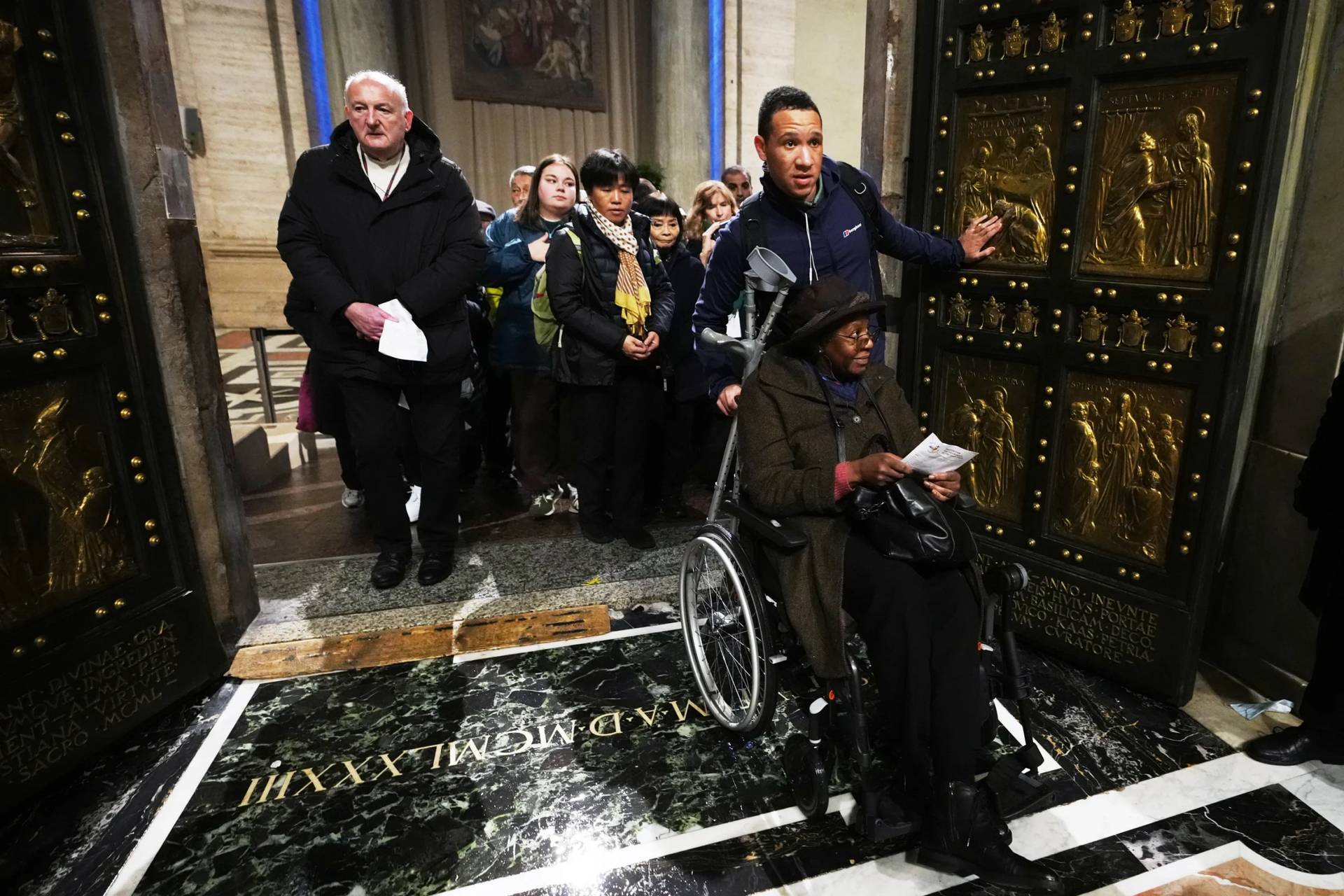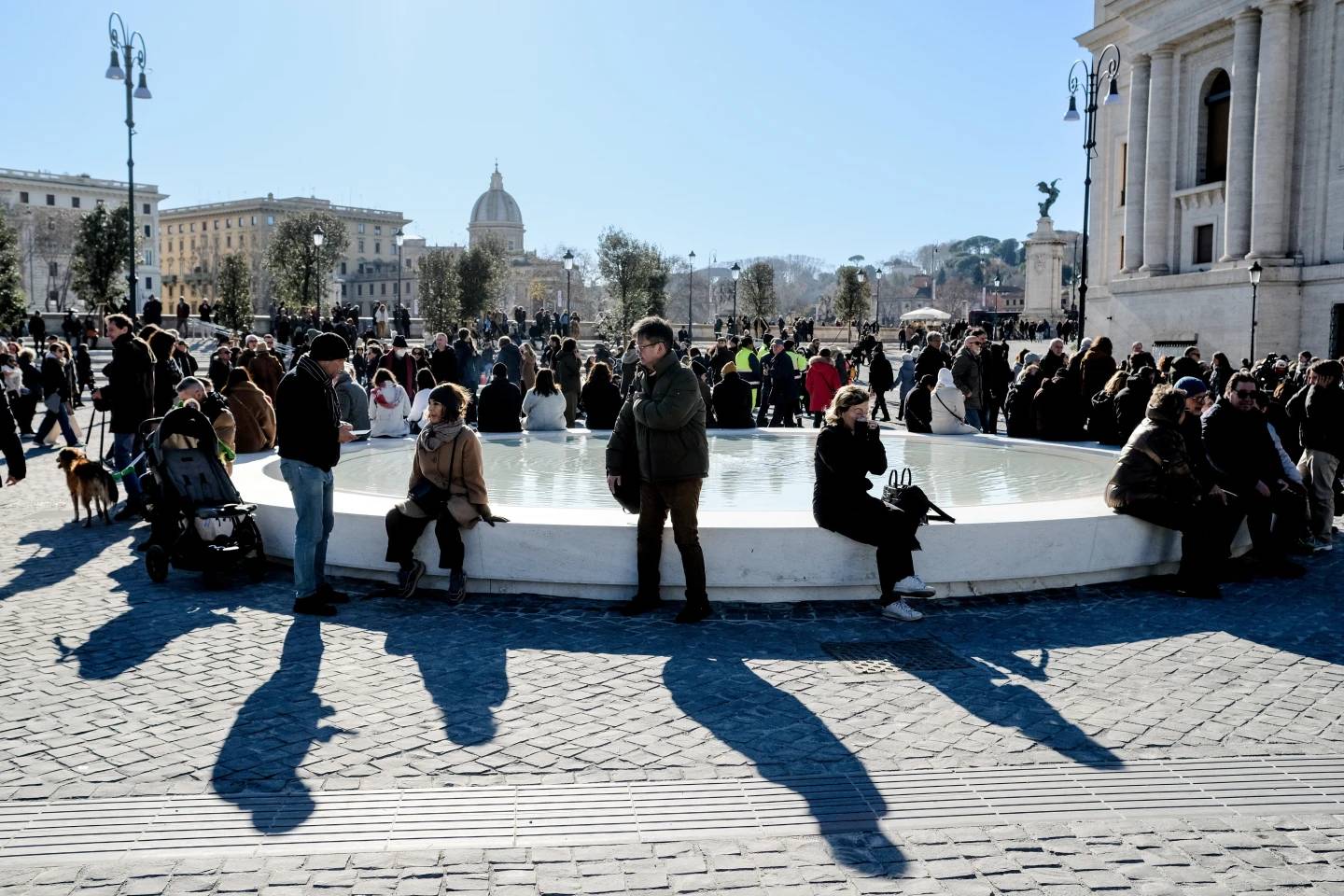ROME – Facing criticism that its recent document on the coronavirus pandemic lacks a Christian perspective and vocabulary, the Vatican’s Pontifical Academy for Life came to its own defense Wednesday, issuing a statement insisting it was trying to communicate “in a way accessible to all.”
“We want to enter human situations, reading them in the light of faith, and in a way that speaks to the widest possible audience, to believers and non-believers, to all men and women ‘of good will’,” the statement said.
“In the pandemic, we meet God to the extent that revelation and our relationship with God helps us understand who human beings are and what their role is in the world,” the statement said.
“Christ is the truth about the human person,” it said. “We decline that truth according to a perspective where anthropology and theology meet, seeking to communicate in a way accessible to all.”
The statement came in the form of a letter to the editor addressed to the Italian news outlet La Nuova Bussola Quotidiana (“New Daily Compass”), led by veteran Italian journalist Riccardo Cascioli. The outlet carried an editorial July 28 critical of the academy’s document.
“The new document of the Pontifical Academy for Life regarding COVID-19 is embarrassing,” it said. “It says nothing, nothing about life and nothing Catholic. It asks for conversion to the environment and solidarity, completely excluding the religious dimension. It’s a document that will be very pleasing to many world leaders.”
The academy response was signed by Fabrizio Mastrofini, a longtime employee of Vatican Radio who today serves as a spokesman for the academy.
Issued on July 22, the document was titled ‘Humana Communitas’ in the Age of Pandemic: Untimely Meditations on Life’s Rebirth.”
(The phrase “untimely meditations” is a reference to a collection of essays published under that title by the German existentialist Friedrich Nietzsche. That choice also elicited criticism in some quarters, suggesting it betrayed a “nihilist” perspective.)
The academy’s document presents greed and exploitation of the planet as root causes of the pandemic, what it refers to as “a symptom of our earth’s malaise and our failure to care.” It also voices concern that fallout from the coronavirus may exacerbate already existing economic inequities.
“Though all, rich and poor, are vulnerable to the virus, the latter are bound to pay the highest price and to bear the long-term consequences of lack of cooperation,” it said.
The academy’s July 29 statement indicated that the earliest criticisms of the document came from “an American site,” presumably a reference to a blog entry by veteran American Catholic journalist Phil Lawler posted the same day the document was issued.
“Despite stretching to well over 4,000 words, the Vatican document does not mention God, Jesus Christ, the Holy Spirit, the Church, the sacraments, prayer, or even charity,” Lawler wrote. “Even the word ‘Christian’ does not appear in the text.”
“There is admittedly a call for ‘moral conversion,’ but in context it is clearly a call for an ideological rather than religious conversion,” Lawler said.
From there, the academy’s statement notes, such criticism was picked up by “Spanish sites and finally also in Italy by some enthusiastic bloggers.”
Mastrofini’s response insists that word counts are not the right way to assess whether the document reflects a Christian perspective.
“I don’t know, at this point, if a job of philological ‘accounting’ about how many times some key words occur in a text is useful,” he wrote.
“It would be preferable to enter into the merits of the themes,” he said. “We’re here to face serious questions that have to do with the future of all humanity.”
Founded in 1994, the Pontifical Academy for Life was known during the St. John Paul II and Pope Benedict XVI as a beachhead within the Vatican for the church’s most staunchly pro-life participants in the wars of culture.
Pope Francis has attempted to steer the academy in a somewhat different direction, naming Paglia, whose background is with the center-left Community of Sant’Egidio, to head the body in 2016, and opting not to reappoint some members known for strongly conservative views.
Paglia also heads the Pontifical Institute John Paul II, which has also been the subject of controversy among critics who charge it has lost its tight focus on life issues.
Follow John Allen on Twitter at @JohnLAllenJr.














